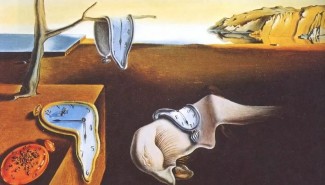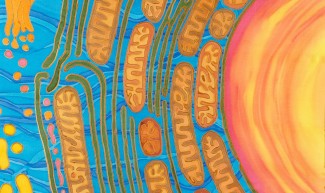What if a few minutes of sleep could act as a trigger for creativity? This is what a study conducted by researchers from Inserm and Sorbonne University at the Paris Brain Institute and the sleep pathology department at the Pitié-Salpêtrière Hospital (AP-HP) suggests. The results are published in Science Advances.
A legend about the inventor Thomas Edison says that he used to take short naps to stimulate his creativity. During these naps, he held a metal ball in his hand. The ball would fall noisily when he fell asleep and wake him up just in time to record his creative flashes. Other famous people were also proponents of using short phases of sleep to stimulate their creative ability, such as Albert Einstein and Salvador Dali.
https://youtu.be/CgA0wUvDqfQ
Inserm researcher Delphine Oudiette and her collaborator Célia Lacaux at the Institut du Cerveau and the Pitié-Salpêtrière Hospital (AP-HP) were inspired by this story and wanted to explore this very particular phase of sleep. The scientists wanted to determine whether this phase did indeed have an effect on creativity.
To do this, the team proposed mathematical problems to 103 participants, all of which could be solved almost instantly using the same rule, which was of course unknown to the participants at the start of the test. The subjects tried to solve the problems a first time. All those who had not found the hidden rule were invited to take a twenty-minute nap under the same conditions as Edison, with an object in their hand, before taking the mathematical tests again.
Spending at least 15 seconds in this very first phase of sleep after falling asleep tripled the chances of finding this hidden rule, through the famous "Eureka! This effect disappeared if the subjects went deeper into sleep. The researchers highlighted several key neurophysiological markers of this creativity-generating sleep phase.
There is therefore a phase conducive to creativity at the time of falling asleep. To activate it, we need to find the right balance between falling asleep quickly and not falling asleep too deeply. These "creative naps" could be an easy and accessible way to stimulate our creativity in everyday life.
The sleep phase has been relatively neglected by cognitive neuroscience until now. This discovery opens up an extraordinary new field for future studies, especially of the brain mechanisms of creativity. Sleep is also often seen as a waste of time and productivity. By showing that it is in fact essential to our creative performance, we hope to reiterate its importance to the public
Sources
Sleep onset is a creative sweet spot
Célia Lacaux1, Thomas Andrillon1, Céleste Bastoul1, Yannis Idir1, Alexandrine Fonteix-Galet1, Isabelle Arnulf1,2, Delphine Oudiette1,2*
1 Sorbonne Université, Institut du Cerveau – Paris Brain Institute – ICM, Inserm, CNRS, Paris 75013, France
2 AP-HP, Hôpital Pitié-Salpêtrière, Service des Pathologies du Sommeil, National Reference Centre for Narcolepsy, Paris 75013, France
Science Advances, décembre 2021
Contact chercheur
Delphine Oudiette
E-mail : delphine.oudiette@icm-institute.org
Téléphone sur demande
Contact presse : presse@inserm.fr







